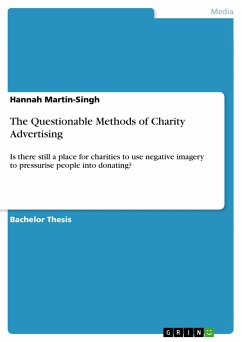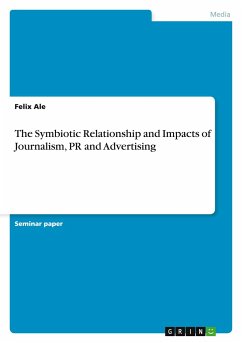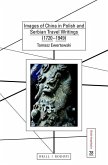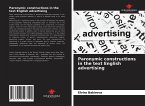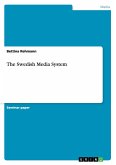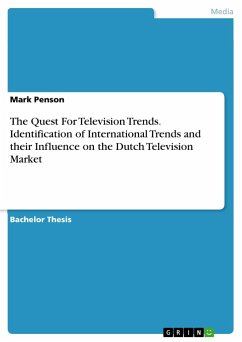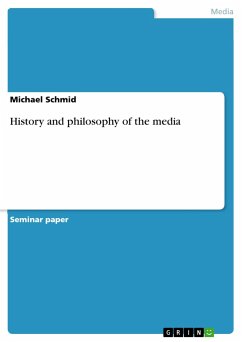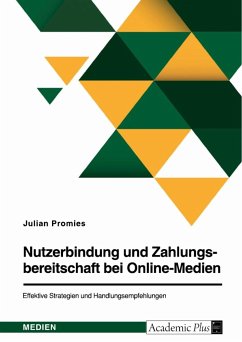Bachelor Thesis from the year 2014 in the subject Communications - Journalism, Journalism Professions, grade: 1st, University of Leeds (Leeds Trinity University), course: Media Research, language: English, abstract: This paper is an evaluation of the techniques that large organisations may use to influence members of the public into donating, exploring how often how often these practices are used and if this format is actually ethical. The purpose is to identify the underlying moralities of charity advertisements in modernity and to ultimately decide whether such mode of practice should be in some way altered or rectified.The methods used to collate empirical audience research are both qualitative and quantitative approaches collated to form part of the main results. It builds on previous work of other academics adding to their research. My main aim is to identify whether positive or negative video advertisements that have more of an effect on the viewer and to classify what type of effect these variable tableaux actually have. Previous research has been undertaken in this way through the form of imagery (Deborah A. Small 2009), as a result this research develops the idea further but through a different medium to fill a gap extant academic knowledge.
Bitte wählen Sie Ihr Anliegen aus.
Rechnungen
Retourenschein anfordern
Bestellstatus
Storno

